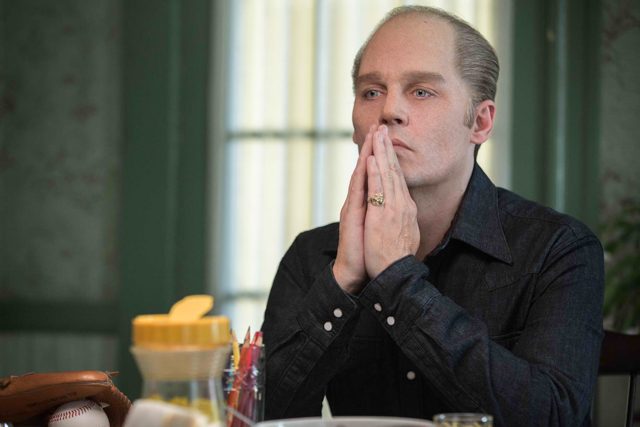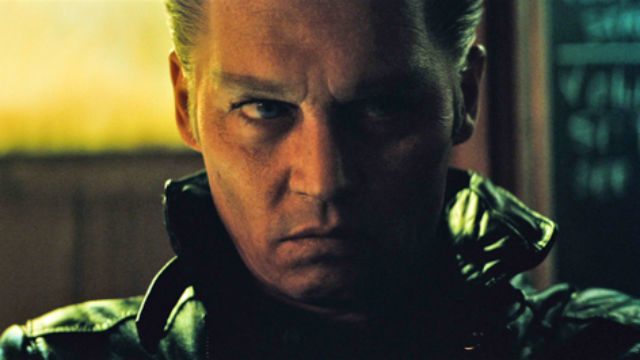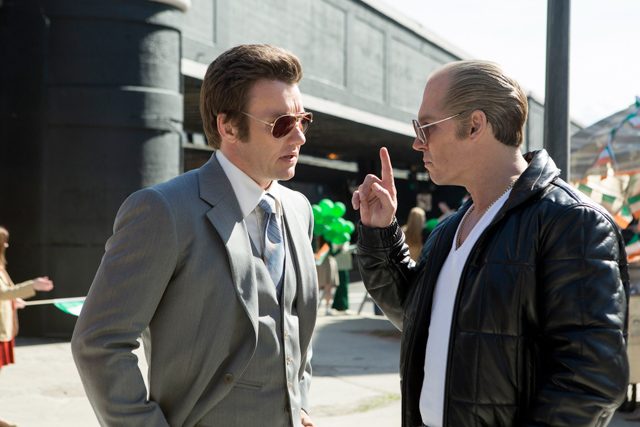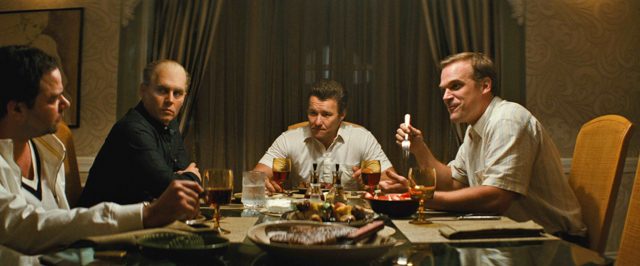SUMMARY
This is AI generated summarization, which may have errors. For context, always refer to the full article.

The first time Scott Cooper shows the face of James “Whitey” Bulger (Johnny Depp), it is half covered in shadows.
It is as if the reliable director of Crazy Heart (2009) and Out of the Furnace (2013) is telegraphing his portrayal of the self-styled kingpin of Boston as a good man cloaked by his acts of evil, or perhaps the other way around, a bad man under the guise of gestures of good.
At first glance, Black Mass feels like it will be establishing Whitey Bulger as an ambiguous man, glamorizing his criminality by depicting the character with sympathy that is usually reserved for fallen angels.
Moral ambiguity

Thankfully, the film is hardly about Whitey Bulger’s moral ambiguity. If anything, there isn’t much elbow room for interpretation in Depp’s depiction of the infamous criminal.
He is an imposing figure, with his carefully planned gestures evoking threat and danger. His face is ghostly pale, marked by a seductive grin that can never reflect any hint of authentic emotions. His eyes have an otherworldly bluish gleam. His scarce crop of silvering hair combed to enunciate the striking contours of his ferociously shaped head.
Sure, Whitey Bulger is arrestingly charming, and at times, surprisingly hilarious despite the ease with which he performs his dastardly deeds.
Those cleverly placed moments where the character exposes some sort of charisma are never meant to infuse any kind of humanity into the character. They are there to complete the picture, to mold him as a character that is capable of assimilating into a society of deals and compromises despite his strict inability to feel compassion for people.
He is the devil to John Connolly’s Faust. Connolly (Joel Edgerton), the FBI agent who introduced Whitey Bulger to the agency to become its informant against Boston’s Italian mob, is where the precious ambiguity lies. He is the corruptible man, the victim of evil’s devious ways, the brittle lawman who is unreasonably beholden to Boston’s penchant for ties of loyalty and family. Connolly is supposed to be the tragically fragile heart of the film, the character you root for and whose downfall is supposed to resonate the strongest.
Repetitive characterization
Unfortunately, Cooper is far too obsessed with Whitey Bulger and his vulgar atrocities.
Connolly’s fate as Whitey Bulger’s doomed puppet feels more like a singular facet of his depiction of Whitey Bulger. It is but one of the many disasters resulting from a mere association to Whitey Bulger’s devil-on-Earth.
The film’s plot, framed by recorded confessions of various criminals-turned-informants, feels like a collection of stories of people descending down the path of misdeed and shame, with Connolly’s tale as the film’s woefully deprived core.

All the film’s other characters are but subjects of Whitey Bulger’s infernal influence.
Billy (Benedict Cumberbatch, whose unusually thick Bostonian accent is tempered by an admirably sober performance), Whitey’s brother. He served as senator during the height of Whitey’s criminal career, and is portrayed with the scarce virtue of dignity, but does not get away unscathed.


Characters, whether they be Whitey’s associates (Jesse Plemons, Rory Cochrane and Peter Sarsgaard) or erstwhile lover (Dakota Johnson), end up as lifeless bodies or damaged goods, enunciating the brutal circle of corruption that the film attempts to project.


This is where Black Mass turns into a repetitive and sometimes pointless exercise of characterization. Cooper enunciates Whitey Bulger’s depravity by soberly staging scenes where he tortures erring comrades, displays his lawlessness, and broods with an overwhelming air of calamity.

Intriguingly, other than the slow but sure corruption of Connolly and the rest of Whitey Bulger’s gang, there is too little in the film that showcases the chaos that is Whitey Bulger’s doing. They are all words, exclaimed reactions from characters who insist on the sad state of Boston, when all that Cooper shows of the city are deceptively peaceful aerial shots of it at night.
Intimate violence
Scenes of violence are somehow kept intimate, resulting in a film whose dramatic impact is limited by the four corners of its elegantly composed frames. There is simply a failure in establishing milieu, which turns what otherwise would be precise depiction of human evil into something frustratingly inert.

As it is, Black Mass is fine melodrama. It ably converts a true-to-life staggered battle against a notorious gangster into a parable of sorts where the tragic figures are those who are foolish enough not to see through evil’s veneer of humanity.
Corruption is infectious. In a world that thrives in connections, everybody ends up tainted. Cooper only misses the point when he overindulges in painting evil with colors that are too loud and vivid, something that is completely understandable considering that the paintbrush he paints with is Depp whose interpretation of Whitey Bulger is far too fierce and convincing to be kept within the cages of good taste. – Rappler.com
 Francis Joseph Cruz litigates for a living and writes about cinema for fun. Thefirst Filipino movie he saw in the theaters was Carlo J. Caparas’ ‘Tirad Pass.’ Since then, he’s been on a mission to find better memories with Philippine cinema. Profile photo by Fatcat Studios
Francis Joseph Cruz litigates for a living and writes about cinema for fun. Thefirst Filipino movie he saw in the theaters was Carlo J. Caparas’ ‘Tirad Pass.’ Since then, he’s been on a mission to find better memories with Philippine cinema. Profile photo by Fatcat Studios
Add a comment
How does this make you feel?
There are no comments yet. Add your comment to start the conversation.